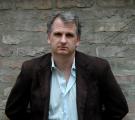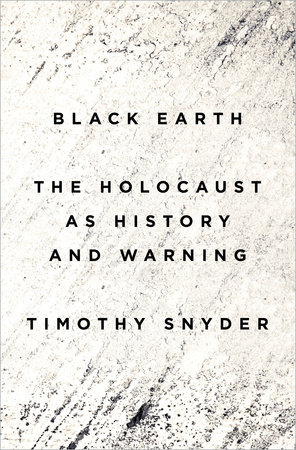Timothy Snyder

Education: B.A., Brown University; PhD, University of Oxford
Timothy Snyder is the Bird White Housum Professor of History at Yale University.
When did you first develop an interest in Slavic, East European and Eurasian Studies?
The light first went on in December 1981, at the time of martial law in Poland, when I was 11. At university in the late 1980s I was interested in diplomacy and intellectual history, and suddenly at the time of the revolutions of 1989 power and ideas seemed to be coming together. I had the good fortune in those years to study with Thomas W. Simons, Jr., who taught a magnificent class in the history of postwar eastern Europe at Brown in 1990, and with Mary Gluck, who included a central European dimension in her surveys and seminars of European intellectual history. I was reading the dispatches of Timothy Garton Ash and was impressed by an essay by Tony Judt on “The Dilemmas of Dissidence.” I thought of myself then as an economist, and wrote my first two long papers on the dilemmas of Soviet economic reform in general and the problem of industrial concentration in particular. All kinds of exciting data were then emerging that allowed for systematic studies that had never been done before. The paper on Soviet monopoly won a prize and brought me to Moscow to present my work in November 1990. That was a special moment, full of snow and new friendships, Bulgakov obsessions and concern about the future. I was sure then, on economic grounds, that the Soviet Union would collapse and said so in my paper and at the conference; this was something my hosts in Moscow, I remember, were very sad to hear.
How have your interests changed since then?
At Brown I thought of myself as a student of economics and politics and thought of history as a kind of culture generale, what everyone should know. Even when I began at Oxford I thought I would be a diplomat; I had been very impressed by erudite diplomats such as Bill Maynes and Tom Simons and thought that history would force me to learn languages and prepare me in general for diplomatic life. My teachers, Tim Garton Ash in particular, helped me to understand that diplomacy was not really a strength! It was the wonderful experience of traveling in eastern Europe in the early 1990s, learning languages and making friends, reading sources and literatures, that taught me that history was not just a background to be mastered but an open field of huge possibilities. I came to eastern Europe for the politics but stayed for the archives. I was very lucky that Jerzy Jedlicki, along with Timothy Garton Ash, agreed to supervise me, and lucky as well to have come to know Andrzej Walicki, Andrzej Paczkowski, and other leading historians of Poland. My teachers drew me towards Poland and away from Russia, partly by the accident of whom I came to know during this years, but I always saw and still see Polish history as only coherent in light of of the Commonwealth and the long encounter with Russia. With time I have tried to see Jewish and east European history “together and apart,” as Shimon Redlich called his very nice memoir of surviving the Holocaust in western Ukraine. I thought then and I continue to think now that eastern Europe is an immensely exciting area of history with enormous subjects remaining to be tackled. From the beginning I was interested in the problem of the intelligentsia and politics; this is a theme that figures in my biographical studies of Kazimierz Kelles-Krauz, Henryk Józewski, and Wilhelm von Habsburg as well as the spoken book I did with Tony Judt; another consistent interest has been the relationship between ideology and social history, which in different ways is the subject of The Reconstruction of Nations, Bloodlands, and now Black Earth, my global history of the Holocaust.

What is your current research project?
I am hoping to write a short analytical study of the transformation of the European order since the revolution on the Maidan. The next large project is called Brotherlands: A Family History of Eastern Europe. For essentially my entire career now I have been working on families where one sibling chose one nationality and another a different nationality, and both become important in rival national movements. The idea is to determine when and where such things were possible and to distinguish between the generic trend towards national politics and the contingent development of particular nations.
What do you value about your ASEEES membership?
Most of all I value my colleagues and the chance to see them at annual meetings.
Besides your professional work, what other interests and/or hobbies do you enjoy?
I have two small children, which is both an answer to this question and the reason why I can’t really answer this question.
